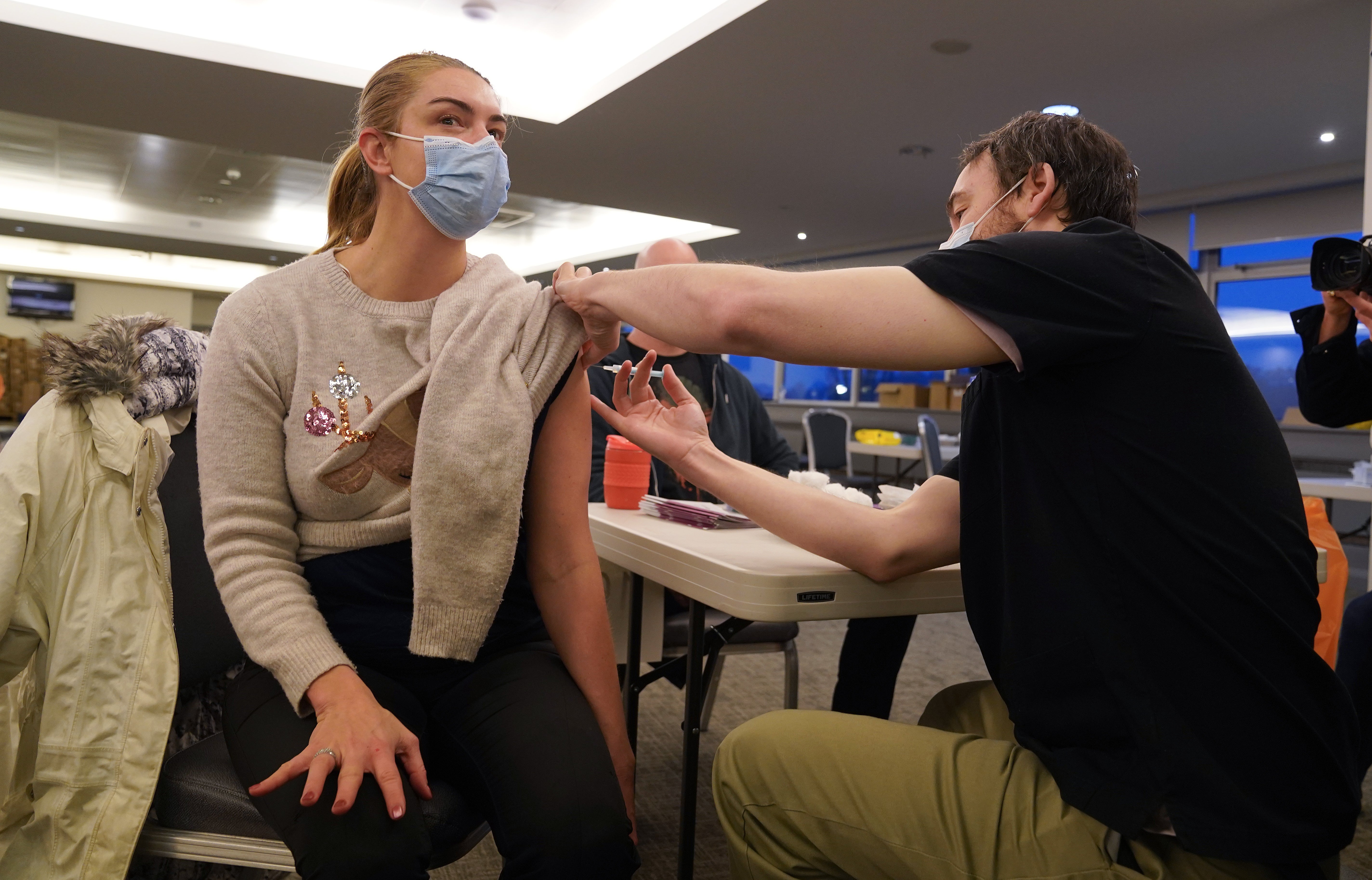Repeating boosters of same Covid vaccines is not a viable strategy to tackle pandemic, WHO warns
WHO panel says new jabs that give better protection against transmission of the virus are needed

Your support helps us to tell the story
From reproductive rights to climate change to Big Tech, The Independent is on the ground when the story is developing. Whether it's investigating the financials of Elon Musk's pro-Trump PAC or producing our latest documentary, 'The A Word', which shines a light on the American women fighting for reproductive rights, we know how important it is to parse out the facts from the messaging.
At such a critical moment in US history, we need reporters on the ground. Your donation allows us to keep sending journalists to speak to both sides of the story.
The Independent is trusted by Americans across the entire political spectrum. And unlike many other quality news outlets, we choose not to lock Americans out of our reporting and analysis with paywalls. We believe quality journalism should be available to everyone, paid for by those who can afford it.
Your support makes all the difference.The World Health Organisation (WHO) has warned against the repeat use of original Covid-19 vaccines as booster shots and said the strategy is “unlikely to be appropriate or sustainable” in the fight against emerging variants.
“A vaccination strategy based on repeated booster doses of the original vaccine composition is unlikely to be appropriate or sustainable,” the WHO Technical Advisory Group on Covid-19 Vaccine Composition (TAG-Co-VAC) said in a statement on Tuesday.
The 18-member expert task force assessing the performance of Covid vaccines has also asked for new jabs that can provide better protection against the transmission of the virus.
“The TAG-Co-VAC considers that Covid-19 vaccines that have high impact on prevention of infection and transmission, in addition to the prevention of severe disease and death, are needed and should be developed,” said the statement.
Simply providing fresh jabs of existing vaccines was not the best way to fight the pandemic, the panel pointed out.
Vaccines should be based on variants “that are genetically and antigenically close to the circulating Sars-CoV-2 [the scientific name for the novel coronavirus] variant(s),” the TAG-Co-VAC explained.
The panel said it would consider a change in the composition of vaccines.
Existing vaccines were less effective in preventing symptomatic Covid disease in people who contracted the Omicron variant of the virus, according to preliminary data.
Protection against severe disease, however, “is more likely to be preserved”.
In addition to protecting people against severe disease and death, Covid vaccines “need to be more effective in protection against infection thus lowering community transmission and the need for stringent and broad-reaching public health and social measures,” the WHO said.
The vaccines should also “elicit immune responses that are broad, strong, and long-lasting in order to reduce the need for successive booster doses.”
Meanwhile, vaccine makers should generate and provide data on performance of existing and Omicron-specific Covid vaccines, the expert task force said.
This should include the “breadth, magnitude, and durability of humoral and cell mediated immune responses to variants through monovalent and/or multivalent vaccines,” it added.
The data will go on to help TAG-Co-VAC when changes to vaccine compositions may be required.
The panel noted the global urgency of prioritising primary vaccination for high-groups as opposed to booster shots in some countries.
“In practical terms, while some countries may recommend booster doses of vaccine, the immediate priority for the world is accelerating access to the primary vaccination, particularly for groups at greater risk of developing severe disease,” the statement said.
Omicron is unlikely to be the last Variant of Concern as the evolution of the virus is expected to continue, the panel pointed out.
Join our commenting forum
Join thought-provoking conversations, follow other Independent readers and see their replies
Comments